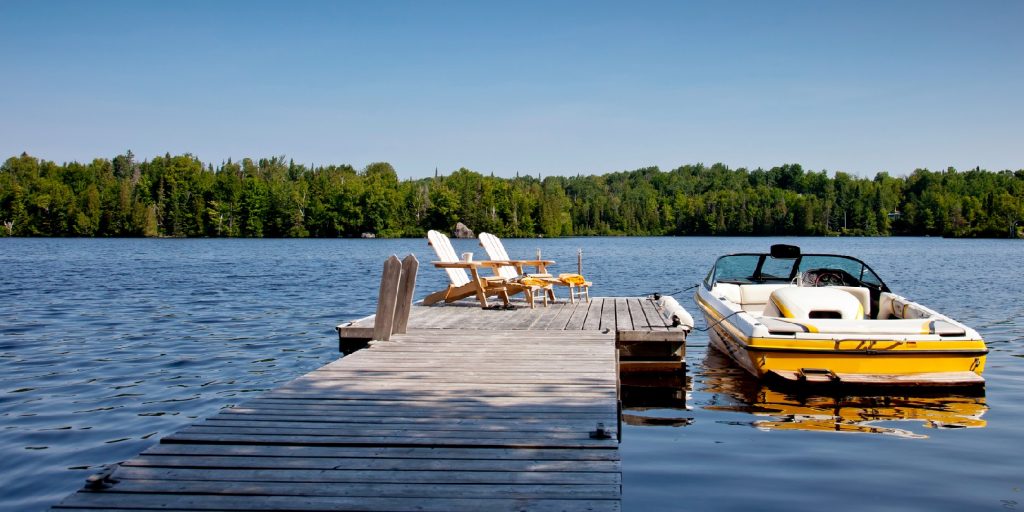Floating Dock vs. Fixed Dock: The Pros and Cons of Each

Many boat owners have to decide between a floating dock and a fixed dock. There are advantages and disadvantages to both styles of docks, and you want to make sure you make the best choice for your boat and your budget.
We’ll discuss the main differences between a floating dock and a fixed dock, the pros and cons of each, and the best choice for your needs. We’ll also look at the cost implications of both docks and how to get the best value for your money. By the end, you’ll have all the information you need to decide which dock style is best for you.
Floating and Fixed Docks
When considering docking options for your vessel, it’s crucial to evaluate the pros and cons of each. Two of the most popular dock types are floating and fixed docks, with key differences that you should consider depending on your specific needs.
A floating dock is a buoyant structure mounted or constructed on pontoons that float on the water. The pontoons can be filled with air or alloy material and secured with anchors or chains to the shore or other anchoring points. Floating docks are suitable for quieter waters or areas with shallow depths where they can provide more stability than a fixed dock.
A fixed dock is a structure secured to the shoreline or seabed by piles driven into the bottom of the lake, river, or inlet. This type of dock is ideal for deeper water depths and large lakes where it can handle wave motion and other environmental factors than a floating dock. Fixed docks tend to be more expensive than floating docks, but they also offer more stability and longevity in many cases.
Benefits of Floating Docks
Floating docks provide a cost-effective option for those looking for a simple way to dock their vessel. They are usually made from lightweight materials such as aluminum, wood, plastic, or composite decking and can be purchased or custom designed. They are easy to install and require minimal maintenance, making them popular for recreational and commercial use. Floating docks are also very accessible since they can move around if needed without needing to be re-installed every time.
Benefits of Fixed Docks
Fixed docks are more stable and durable. Due to their secure anchorage, they provide more protection from drastic environmental changes, such as wave motion, strong currents, and wind gusts. These docks would be perfect for anyone looking for a more permanent solution to accommodate larger vessels. They are more expensive than floating docks because they anchor into the shoreline or seabed. Because of their permanent structure, customization options may be more limited than with a floating dock.
Factors To Consider
When choosing between a floating or fixed dock, it’s crucial to consider location, water depth, and budget. Floating docks are ideal for shallower waters, while fixed options are more suitable for deeper waters with choppier waves. Consider where you plan to install the dock, as it needs to accommodate the type of dock you choose. If the water depth is too shallow for a fixed dock, it may not be a viable option. Budget is a significant factor, as fixed options generally come with higher costs, even if you hire someone to install them. Evaluate these factors to decide on the best dock option for your needs.
Tips for Making a Choice
Research and explore the available options in your area to decide between a floating or fixed dock. Consulting with an expert can provide valuable insights and help you make an informed decision based on your needs and circumstances. After identifying the most suitable type of dock, take accurate measurements to ensure a proper fit at your docking area. By following these steps, you will be well-prepared to invest in a floating or fixed dock, enabling you to safely enjoy your vessel while docked on the lake or river with the convenience of your chosen dock type.
Conclusion
It’s critical to consider the advantages and disadvantages of each option to make a well-informed decision between a floating and fixed dock. Floating docks are more affordable and easier to install, but they may not provide the same level of reliability in rough waters. Fixed docks are pricier and require more time for installation, but they offer enhanced security and stability, making them suitable for larger vessels and deeper waters. The choice depends on your specific needs and the conditions of your docking location. You can confidently enjoy your boat for many years with the right choice.
